Have a peek into our guide on the most popular web frameworks of 2023, and find out which tools are setting the standard for web development excellence.
More...
Notable names in the industry, such as Netflix, Instagram, LinkedIn, Facebook, and YouTube, have transformed the web app experience using reliable web development frameworks. These frameworks are instrumental in delivering high-performance applications that meet the demands of today's users.
With the market flooded with various web development frameworks, choosing the right one can be a daunting task. To help you in this selection process, we have compiled a list of the 10 most popular web frameworks for the year 2023.
React
Angular
Vue.js
Ember.js
jQuery
Ruby on Rails
Django
Laravel
ASP.NET
Express
But before diving into the details, let's first understand the definition and importance of web frameworks.
What Are Web Frameworks?
Web development frameworks are tools that support the development of web applications, including web services, resources, and APIs. They provide prewritten components, code snippets, and templates that ease the work of web developers. These frameworks automate common tasks during development and enforce standardized development and design conventions.
By improving code efficiency and reusability, web frameworks streamline the development process, reduce complexity, eliminate errors, and handle background details such as data binding and configuration.
One of the key advantages of using web frameworks is that they bootstrap development by providing tools and packages, preventing developers from writing scripts from scratch.
They help both experienced and inexperienced developers explore specific features and reduce code length by offering code generation features. Overall, web frameworks simplify and condense the development process, making it more efficient and productive.
Now, without further ado, let's explore the top 10 web development frameworks for the year 2023:
most popular web frameworks
Front-End Frameworks
React

Introduced by Meta (formerly Facebook) in 2013, React is a popular JavaScript library for building interactive user interfaces. It is suitable for dynamic web applications, single-page applications, and can even be used to build mobile applications. React is known for its ease of learning, SEO-friendliness, and flexibility. It offers the best server-side rendering and excellent SEO support compared to other front-end frameworks. Popular web applications like Netflix, Instacart, and Salesforce utilize React JS.
Angular
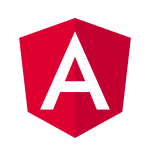
Developed by Google and released in 2010, Angular is an open-source JavaScript framework. It enables the development of high-performance and large-scale JavaScript-based web applications. Angular promotes code consistency by using HTML, CSS, TypeScript, and advanced web development tools. TypeScript, the language used in Angular, makes it ideal for building enterprise-level applications. Popular web applications like PayPal, Forbes, and Microsoft Xbox use AngularJS.
Vue JS

Vue JS is an open-source JavaScript framework known for creating stunning and interactive user interfaces. It combines the best features of React.js and Angular.js for developing single-page applications (SPAs) and visually appealing web applications. Vue JS is recognized as one of the best frameworks for building responsive web applications. Popular web applications like Gitlab, Netlify, 9GAG, Behance, and Chess use Vue JS.
Ember JS
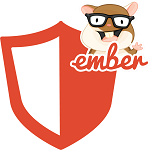
Ember JS is an open-source JavaScript framework that emphasizes productivity and follows the MVVM (Model-View-ViewModel) paradigm. It incorporates HTML and CSS at its core for development. Ember JS is popular among developers due to its stability and maintainability in building single-page and dynamic client-side applications. Popular companies like LinkedIn and Apple utilize Ember JS for their applications.
jQuery

jQuery, released in 2006, is a lightweight JavaScript library that simplifies HTML element interaction, CSS animations, event handling, and Ajax calls. It adheres to SEO-friendly practices and is used by popular web applications like WordPress, GeeksforGeeks, Bitbucket, Trello, and Codepen. jQuery simplifies DOM manipulation and offers a wide range of plugins to extend web app functionality. It combines CSS, HTML, JavaScript, and AJAX for Flash-like animations and has built-in animation effects.
Integration with Other Technologies: The Full-Stack Perspective
Integration with other technologies is critical for modern web development. A framework's ability to work seamlessly with various back-end technologies, databases, and development tools can greatly enhance its utility. For example, React's compatibility with Node.js can streamline the development process for full-stack JavaScript applications, while Angular's cohesive ecosystem is designed to work well with a variety of back-end solutions.
Back-End Frameworks
Ruby on Rails
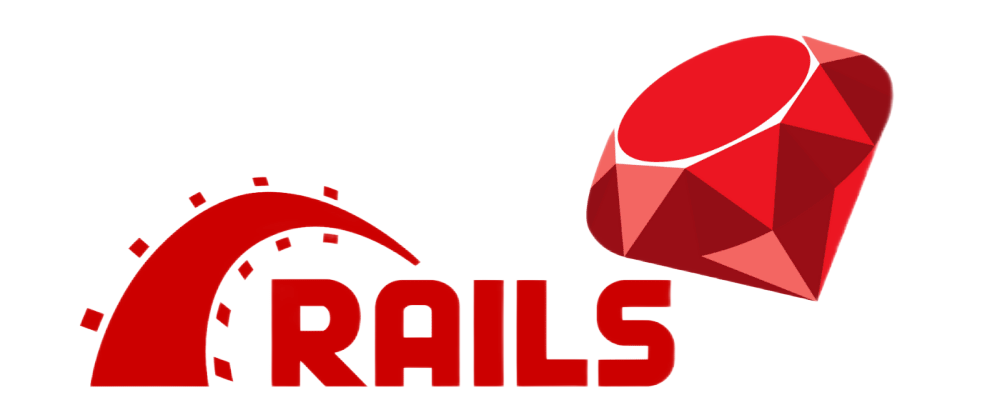
Ruby on Rails, also known as Rails, is a popular open-source backend framework based on the MVC (Model-View-Controller) architecture. It emphasizes conventions, reusability, and the active record pattern. Introduced in 2005, Ruby on Rails has quickly become a leading backend framework, competing fiercely with other web technologies. It enables the development of high-speed applications and includes everything needed to build a database-driven application. Popular web applications like Github, Airbnb, Fiverr, and Shopify utilize Ruby on Rails.
Django

Django is a popular Python-based backend web development framework that simplifies the creation of complex, scalable, and data-driven web applications. It enables programmers to write readable, clean, and maintainable code following Python syntax rules. Django has gained popularity due to its robustness and the ease with which it handles common web development tasks. Many well-known websites, including Instagram and Mozilla, rely on Django for their back-end development needs.
Laravel
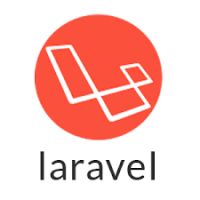
Laravel is a widely used PHP-based backend framework known for its elegance and simplicity. It follows the MVC pattern, offering developers an efficient and intuitive way to build web applications. Laravel provides a rich set of tools and features, including a modular packaging system, a powerful ORM (Object-Relational Mapping) called Eloquent, and a robust command-line interface called Artisan. Popular web applications like Slack, 9GAG, and Buffer utilize Laravel.
ASP.NET
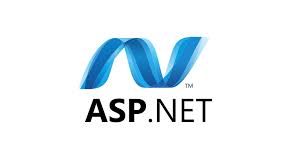
ASP.NET is a feature-rich and versatile backend framework developed by Microsoft. It supports several programming languages, including C# and Visual Basic. ASP.NET is known for its scalability, performance, and security features. It offers a wide range of built-in functionalities, making it easier to develop complex web applications. Popular websites like Microsoft, Stack Overflow, and GoDaddy rely on ASP.NET for their backend development.
Express

Express is a minimal and flexible backend framework for Node.js, a popular runtime environment for executing JavaScript code server-side. Express simplifies the development of web applications by providing a fast and unopinionated framework that supports various HTTP methods and middleware functionalities. It is highly popular in the Node.js community and is used in web applications like Uber, IBM, and MySpace.
most popular web Frameworks' Selection Guide
Choosing the right web framework for your project is a critical decision that can affect both the immediate success of your development process and the long-term viability of your application. Here are the key factors to consider:
- 1Ease of Use: How straightforward is the framework to learn and use, especially for new team members?
- 2Community Support: Is there a large community behind the framework to help when you're stuck?
- 3Performance: Does the framework perform well under heavy loads or high traffic?
- 4Scalability: Can the framework handle the growth of your application in users or data?
- 5Compatibility: Will the framework integrate well with your other tools and systems?
- 6Compatibility: Will the framework integrate well with your other tools and systems?
- 7Documentation: How comprehensive and up-to-date is the documentation?
Front-End Frameworks
Framework | Ease of Use | Performance | Compatibility | Documentation |
|---|---|---|---|---|
React | High | High | High | Extensive |
Angular | Moderate | High | Moderate | Comprehensive |
Vue.js | High | High | High | Extensive |
Ember.js | Moderate | Moderate | Moderate | Comprehensive |
jQuery | High | Moderate | High | Extensive |
Back-End Frameworks
Framework | Ease of Use | Performance | Compatibility | Documentation |
|---|---|---|---|---|
Ruby on Rails | Moderate | Moderate | High | Extensive |
Django | Moderate | Moderate | High | Comprehensive |
Laravel | High | Moderate | Moderate | Extensive |
ASP.NET | Moderate | High | Moderate | Comprehensive |
Express | High | High | High | Extensive |
If you're looking for IT staff augmentation to support your web development projects, consider partnering Bluebird. With their pool of highly skilled and experienced developers, Bluebird can provide the additional resources you need to meet your project deadlines and deliver exceptional results. Don't let a lack of resources hinder your web development goals.
Reach out to us today and take your web development projects to new heights!